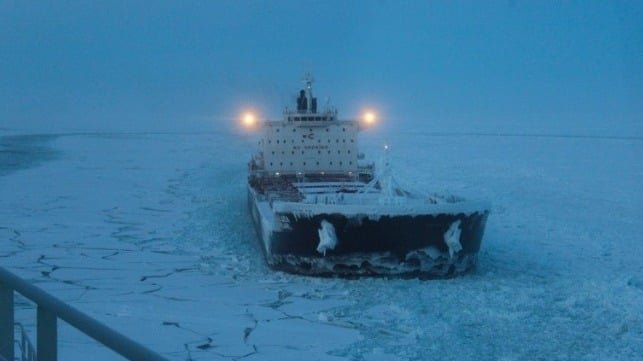The Urgent Need for Action on Black Carbon Emissions in Arctic Shipping
As shipping activity heats up in the Arctic, environmental advocates are urging the International Maritime Organization (IMO) to address the continued use of Heavy Fuel Oil (HFO) and the emissions of black carbon above the 66th parallel. Black carbon, which is soot from exhaust stacks, settles on ice and accelerates melting due to its heat-absorbent properties. This not only enhances ease of navigation but also causes significant environmental harm.
Over the past decade, Arctic traffic has doubled and is projected to continue growing. Advocacy groups such as Pacific Environment and the Clean Arctic Alliance are calling for mandatory fuel switching to a “polar” distillate, similar to the Emission Control Area (ECA) zones in European waters. They argue that there is a loophole in the current regulations, as the IMO Polar Code banned HFO in certain parts of the Arctic by 2024, but many vessels can still use HFO until 2029, with exemptions in the North Atlantic and the Barents Sea.
Kay Brown, Arctic policy director at Pacific Environment, emphasized the need for mandatory requirements to curb black carbon emissions from Arctic shipping. Despite technical assessments and voluntary measures proposed at the IMO, black carbon emissions continue to rise unchecked, highlighting the necessity for decisive action.
However, progress at the IMO has been sluggish, attributed to a lack of awareness about the impacts of black carbon and political differences among member states. Implementing a ban on HFO in the Arctic could lead to increased fuel costs for various regional shipping interests, including fishing and cruise tourism in northern Norway, Greenland, and Svalbard, as well as small local ports in northern Alaska and Canada.
The Russian-controlled Northern Sea Route (NSR) could be significantly affected by a potential fuel mandate, as it is a high-volume shipping route. Russia’s government aims to develop the NSR into an international thoroughfare with year-round navigation, facilitated by investments in icebreaker tonnage and shrinking ice cover.
While the transition to marine distillates may raise operational costs for shipping companies operating in the Arctic, the environmental benefits and long-term sustainability of the region outweigh the short-term financial implications. It is imperative for the IMO to take decisive action to mitigate black carbon emissions and protect the fragile Arctic ecosystem for future generations.

